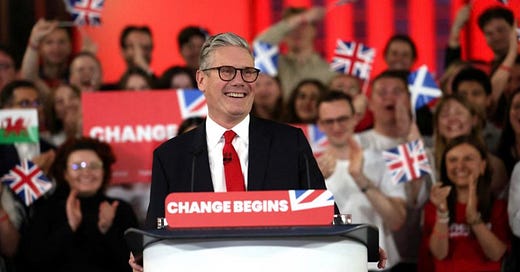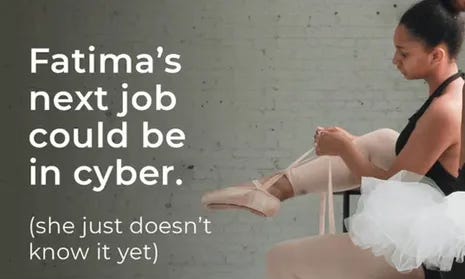A Change Has Come
A positive night for Progressive parties in the UK could herald a new dawn for the UK's creative industries.
Sir Keir Starmer is the new British Prime Minister in an historic landslide win for the centre left Labour Party. The Conservative Party who had been in power for the last 14 years has been routed in their worst ever election performance losing a stack of cabinet ministers and even their former Prime Minister Liz Truss was voted out.
Culturally, this a big movement for the UK and although it is a record breaking result for progressive parties there is also a worrying rise in the vote for the far right Reform Party.
Culturally this is a huge moment. There is now hope that the voices that will be heard in Government will be more diverse and will represent the whole country rather than just the shrill, obsessive shouting of the older, wealthier and mainly white members of the fallen Conservative Party.
Much of the former Government’s fall is self inflicted. They drifted ever more to a hard right position on immigration and stoked up unnecessary culture wars that gave those subjects salience and opened the door for the anti-immigration Reform Party.
For the arts it is good to see the back of the Tories who have decimated our industry, politicised the Arts Council and even had a culture minister, Nadine Dorries, who did not know how Channel 4 was financed. It is unlikely that public investment in UK arts will increase at least in the short term.
However, there will be a renewed focus on integrity in office from the new Prime Minister (who was previously the country’s most senior lawyer) which is needed to rebuild trust in politics.
This should have the result of reducing the politicisation of the arts which has happened as part of the Tory’s vicious culture wars. We should also see less hideous devaluing of the arts and those who work in the industry - this advert below was released by the last Government
The creative industries in the UK contribute more to the economy than automotive and aerospace together. They help grow and spread Britain’s presence around the world enabling the country to culturally punch way above its weight. But only the children of the country’s wealthiest 7% who attend private, fee paying schools experience any meaningful education in the arts and the former Government planned to remove funding from arts courses at universities.
Hopefully, a Government focused on service and competence can replace psychodramatic dogma with intelligent pragmatism and the UK’s hugely successful creative industries can again be recognised as a vital and important part of the country’s social and economic fabric.
Today is about Change. Good luck to Sir Kier Starmer and the new Labour Government.





